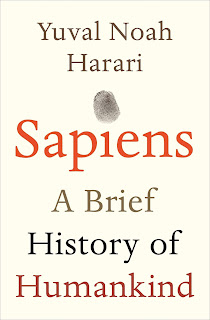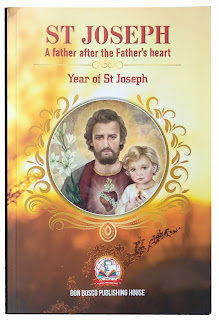Sapiens: A Brief History of Humankind (Book Review)
Yuval Noah Harari, Sapiens:
A Brief History of Humankind, London: Vintage Books, 2014, ISBN
9780099590088, pp. 498, £8.99
Dr. Yuval Harari published this bestseller originally in
Hebrew in 2011. The book turned out to be such a grand success that it was
quickly translated into over 30 languages and awarded the Polonsky Prize for
Creativity and Originality in the Humanistic Disciplines. Dr Yuval has a PhD in
History from the University of Oxford and currently lectures at the Hebrew
University of Jerusalem.
I was interested in this book because it was rated as a
bestseller for quite a long time. I was curious to know what made it so
popular. Honestly, I didn’t find it groundbreaking although I did enjoy reading
it. Dr Yuval has a very free flowing and gripping style of writing that
glitters with his tongue-in-cheek allusions, comparisons and reflections. It is
evident that he takes the historical approach in writing this book but uses a
good deal of biology, archaeology and anthropology primarily besides other
disciplines including religion to develop his ideas.
 The book is broadly divided into four parts each
constituting a couple of chapters. The Chapters are well titled and evoke
interest in the reader. They begin from the earliest known sources of humankind
or as referred to in the book “sapiens”, by tracing the rise of sapiens and
their subsequent expansion. Hence the first part is titled ‘The Cognitive
Revolution’. The second part is ‘The Agriculture Revolution’ and explains how
sapiens came to settle down and produce their own food. In Part Three he
addresses key components of human life that are shaped and defined by economics.
This part is smartly entitled ‘The Unification of Humankind’ and tries to shed
some light on the processes that brought humankind together. Finally, the last
part called ‘The Scientific Revolution’ takes off from the rise and spread of
industrial technology and culminates with brief reflections on the present and
future state of mankind. The next book, Homo
Deus, takes off where this one rests. The author does well to set the stage
for the next book.
The book is broadly divided into four parts each
constituting a couple of chapters. The Chapters are well titled and evoke
interest in the reader. They begin from the earliest known sources of humankind
or as referred to in the book “sapiens”, by tracing the rise of sapiens and
their subsequent expansion. Hence the first part is titled ‘The Cognitive
Revolution’. The second part is ‘The Agriculture Revolution’ and explains how
sapiens came to settle down and produce their own food. In Part Three he
addresses key components of human life that are shaped and defined by economics.
This part is smartly entitled ‘The Unification of Humankind’ and tries to shed
some light on the processes that brought humankind together. Finally, the last
part called ‘The Scientific Revolution’ takes off from the rise and spread of
industrial technology and culminates with brief reflections on the present and
future state of mankind. The next book, Homo
Deus, takes off where this one rests. The author does well to set the stage
for the next book.
As I was reading I got the feeling that the author was
transcending the boundaries of his discipline and making assumptions, indirect
accusations and even sarcastic observations regarding worldviews that didn’t
coincide with his own. While his data seemed pretty accurate and his
conclusions logical, he comes across as being a bit over-enthusiastic and
confident of his ideas. He doesn’t take too kindly to religion and almost
presents it as a delusion or fraud created by humankind for itself. The same
goes with other realities we take for granted like the agricultural revolution,
the industrial revolution as well as the advancement of science and technology.
What is interesting is that the author hardly shows much interest in the
supernatural except to point out the ridiculousness of such a thing, ends on a
rather spiritual note, hinting that sapiens have turned themselves into gods
but he doesn’t seem to be too happy about that fact since their track record
has been pretty destructive.
The book presents some challenging ideas that people from
all walks of life would do well to read and think about. I think this is a good
book in as much as it offers plenty of data and observation in simple,
colloquial language that requires a sincere amount of discussion and debate.
From a Catholic point of view, there is plenty to challenge our ideas, beliefs
and even our very faith. The history of Catholicism hasn’t been a very good,
clean and holy one but the present and future can; and this is up to us. I would
recommend this book to all those interested in knowing where humans have come
from and what history has to say about the human race. I would also highly
recommend this book to students particularly those who call themselves
religious as it serves as a good sharpening stone on which one can clarify and
strengthen ones ideas and beliefs regarding faith, God and life.



Comments
Post a Comment